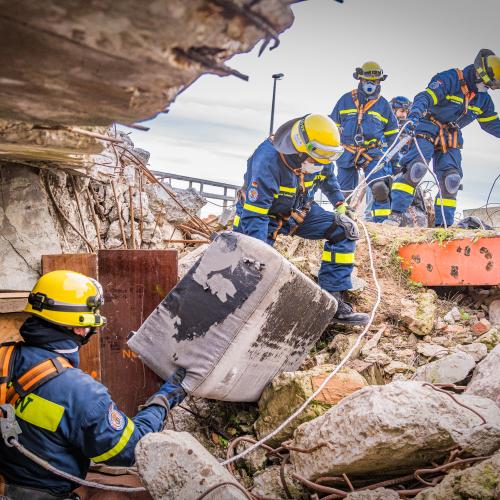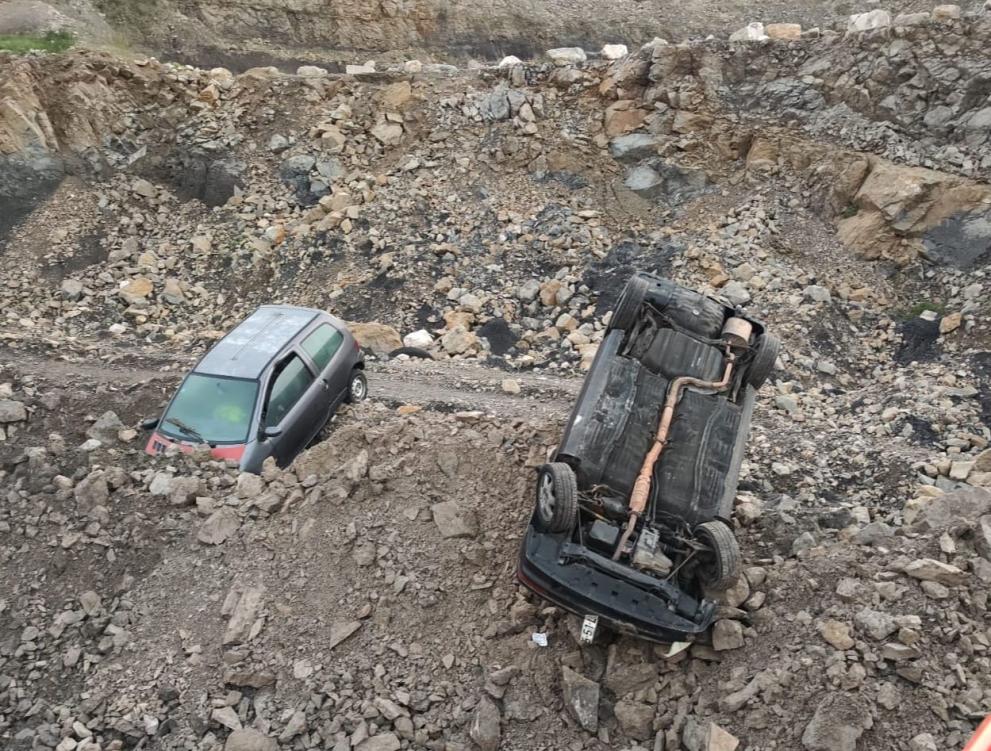
EU MODEX Portugal
A testimonial from a Portuguese citizen who observed the EU Module Exercise in Seixal, Portugal.

28 November was a gloomy day in the history of Portugal. The country was hit by a tsunami caused by a major seaquake of 7.1 magnitude. The majority of the infrastructure in the Setúbal Peninsula was severely damaged: water, gas, electricity, and communications were disrupted. Dozens of people were missing. Overwhelmed by the consequences of this disaster and its cascading effects, the Portuguese Government decided to request international assistance through the Union Civil Protection Mechanism (UCPM). The last time this West European land witnessed a natural disaster of such dramatic dimension was in November 1755, leading to the reconstruction of Lisbon as we know it today.
The scenario described above was what the international teams and I faced as soon as we arrived in Seixal. Thankfully, there had been no seaquake nor any real widespread damage to the infrastructure. Everyone was safe – this was a European Module Exercise (EU MODEX) to train Urban Search and Rescue (USAR) modules within the scope of the UCPM. Participating in this EU MODEX in Portugal as an observer, I felt not only like I was faced with a real natural catastrophe but I was also able to learn about an international deployment. Most importantly, this turned out to be a real eye-opener for me as a Portuguese citizen, as I experienced firsthand how my national authorities (ANEPC, GNR, INEM and others) interact with each other and coordinate with international actors in times of crisis. It did not take long for me to feel a strong sense of pride in my country’s Guarda Nacional Republicana (GNR), as it outstandingly – and committedly – hosted this exercise.

For Portugal, this exercise is important because it allows us not just to receive other teams and be more collaborative and interoperable with other modules, but also to train ourselves as a host nation requesting international assistance.
More than 500 civil protection experts were involved in this EU MODEX from 29 November to 2 December - an uninterrupted exercise of 48 hours to test the 24/7 capacity of the modules and other response capacities. There were some ‘time jumps’ to close the loop of some events and cover all the major phases of the simulated intervention. Daily briefings took place to discuss logistics, the last operational period, and the following 12-24 hours.
This exercise is relevant because it fosters networking and information sharing among several municipalities.
As in any other EU MODEX, the exercise personnel had different functions: coach/trainers followed the participating modules and were responsible for monitoring the module’s operation; safety officers were in charge of checking the location/venue objects prior to the start of the scenario; an ERCC liaison officer interacted with the international teams to bring in the realism of reporting; role players tested the ability of the participants to engage with operational and tactical level representatives from local authorities and with high-profile personalities; there were also classifiers, evaluators, and – of course – many role-players simulating the injured. The exercise tested interoperability, coordination, self-sufficiency, ability to communicate and report, and evaluation and improvement of standard operating procedures.

Everyone is interested in helping each other. No nations, one family.
Four modules came together in this exercise: 1) SEEBA Heavy: a German Heavy USAR module, 2) EST MUSAR: an Estonian Medium USAR module 3) ERICAM: a Spanish Medium USAR module 4) ESP-01 RPAS: Spanish Remotely Piloted Aircraft System module.
An important element in this exercise was the reclassification of the Estonian Medium USAR, following its classification by INSARAG in 2015. Another highlight was the visit of the Secretary of State for Home Affairs of Portugal, Patrícia Gaspar – received with a warm welcome from the staff and participants – her former colleagues and friends from the field.
For Bruno Lopes, GNR and Deputy Venue Manager, logistics was the biggest challenge “Almost 600 people were involved in this exercise. It is complex to arrange accommodation, transport, and meals for everyone.” Planning started six months before the exercise, and the local population was informed not to be caught by surprise.

We are doing this for our citizens, our population.
The main purposes of an EU MODEX field exercise are to test the performance of the modules in different environments and to provide learning opportunities to the participants. In light of this, injects (where something ‘unexpected’ for the teams occurs) happen at different times, in reaction to the progress and response of the teams.

The Knowledge Network editorial team is here to share the news and stories of the Knowledge Network community. We'd love to hear your news, events and personal stories about your life in civil protection and disaster risk management. If you've got a story to share, please contact us.